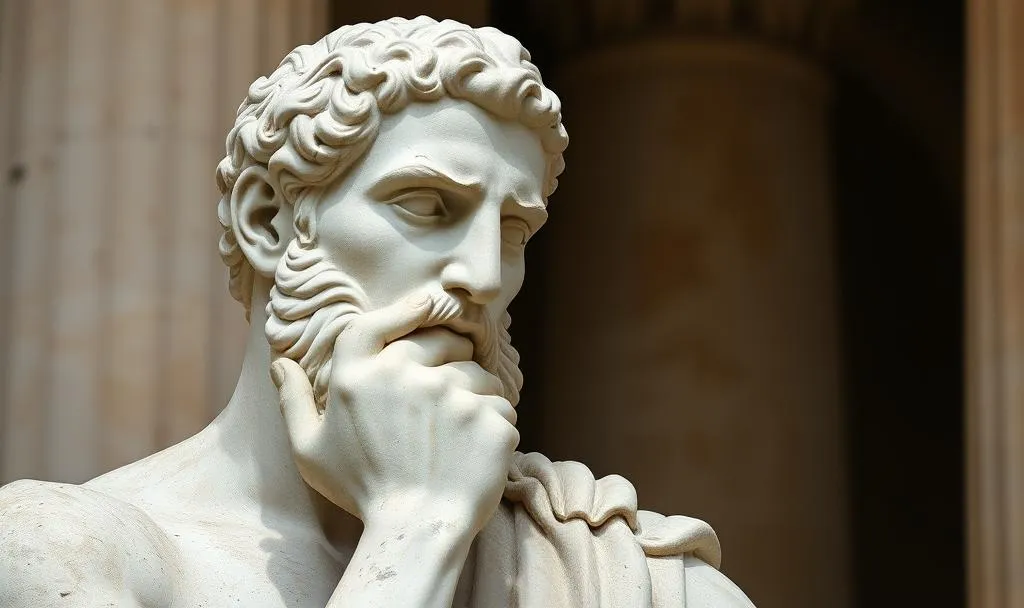Resilient Verses: Exploring the Enduring Power of "Invictus"
There’s something rather spectacular about this poem that manages to remain relevant over a century later.
“Invictus” penned by William Ernest Henley in 1875, is perhaps the ultimate “pull yourself up by your bootstraps” pep talk—except, ironically, Henley couldn’t physically wear boots due to his tuberculosis of the bone. Talk about commitment to the metaphor.

The Unconquerable Soul
Henley opens with:
Out of the night that covers me,
Black as the pit from pole to pole,
He wasn’t being melodramatic—the man wrote this while recovering from a leg amputation at a very young age. While my worst days typically involve a lazy day and cold coffee, his perspective on facing adversity continues to resonate & humble me.
The central message—“I am the master of my fate, I am the captain of my soul”—has become somewhat of a motivational poster cliché. Yet, stripped of modern self-help packaging, this sentiment remains profoundly powerful.
We might not control circumstances, but we can command our responses.
Stoicism Before It Was Cool

The philosophical roots of “Invictus” Long before Silicon Valley executives discovered Marcus Aurelius, Henley was embodying stoicism with lines like:
In the fell clutch of circumstance,
I have not winced nor cried aloud.
This isn’t about suppressing emotions—rather, it’s acknowledging hardship while refusing to be defined by it.
What fascinates me most is how Henley doesn’t deny suffering. The “bludgeonings of chance” are very real in his world. This is no toxic positivity here, just stubborn, unconquered resilience (“Invictus” is Latin for “unconquered”).
Continued Modern Relevance
In a world of carefully curated social media personas, “Invictus” reminds us that our most authentic strength often emerges not from our highlight reels, but from how we navigate our darker, more depressing times.
The poem’s lasting appeal lies in its broad resonance. Whether facing physical challenges like Henley, professional setbacks, or the existential dread of “What am I doing with my life?!”, the principle remains—we determine our internal response.
Finding Your Unconquerable
Perhaps the most practical takeaway from “Invictus” isn’t about heroic resistance against monumental odds. It’s about the everyday choice to remain unbowed in spirit, even when circumstances suggest otherwise.
As someone who occasionally feels defeated when something (although insignificantly small) doesn’t go my way, I find Henley’s perspective both humbling and inspiring. If he could maintain such resolve while literally losing a limb, surely I can summon similar fortitude when facing life’s lesser inconveniences.
In the end, being “Invictus” -— unconquered—isn’t about never falling; it’s about maintaining sovereignty over that internal space where your true self resides, regardless of external circumstances.
And that, I believe, is a lesson worth carrying through whatever darkness may cover our paths.
Final Thoughts
As we navigate our increasingly complex world, Henley’s century-old words offer a timeless reminder: circumstances may constrain our options, but never our dignity. “Invictus” isn’t just Victorian motivation—it’s a blueprint for psychological resilience.
When I revisit this poem during difficult moments, I’m struck less by its defiance and more by its quiet assurance. It’s reassuring that past generations also faced their own unimaginable challenges and discovered that true inner freedom comes not from controlling external circumstances, but from within.
It matters not how strait the gate,
How charged with punishments the scroll,
_I am the master of my fate,
I am the captain of my soul.
Perhaps that’s the ultimate gift of “Invictus” —- the recognition that being unconquerable has nothing to do with avoiding life’s storms and everything to do with how we sail through them.

In a world increasingly beyond our control, William Ernest Henley reminds us of the one territory where our authority remains absolute: The realm of our own response.
The complete poem:
Out of the night that covers me,
Black as the pit from pole to pole,
I thank whatever gods may be
For my unconquerable soul.
In the fell clutch of circumstance
I have not winced nor cried aloud.
Under the bludgeonings of chance
My head is bloody, but unbowed.
Beyond this place of wrath and tears
Looks but Horror of the shade,
And yet the menace of the years
Finds and shall find me unafraid.
It matters not how strait the gate,
How charged with punishments the scroll,
I am the master of my fate,
I am the capitan of my soul.